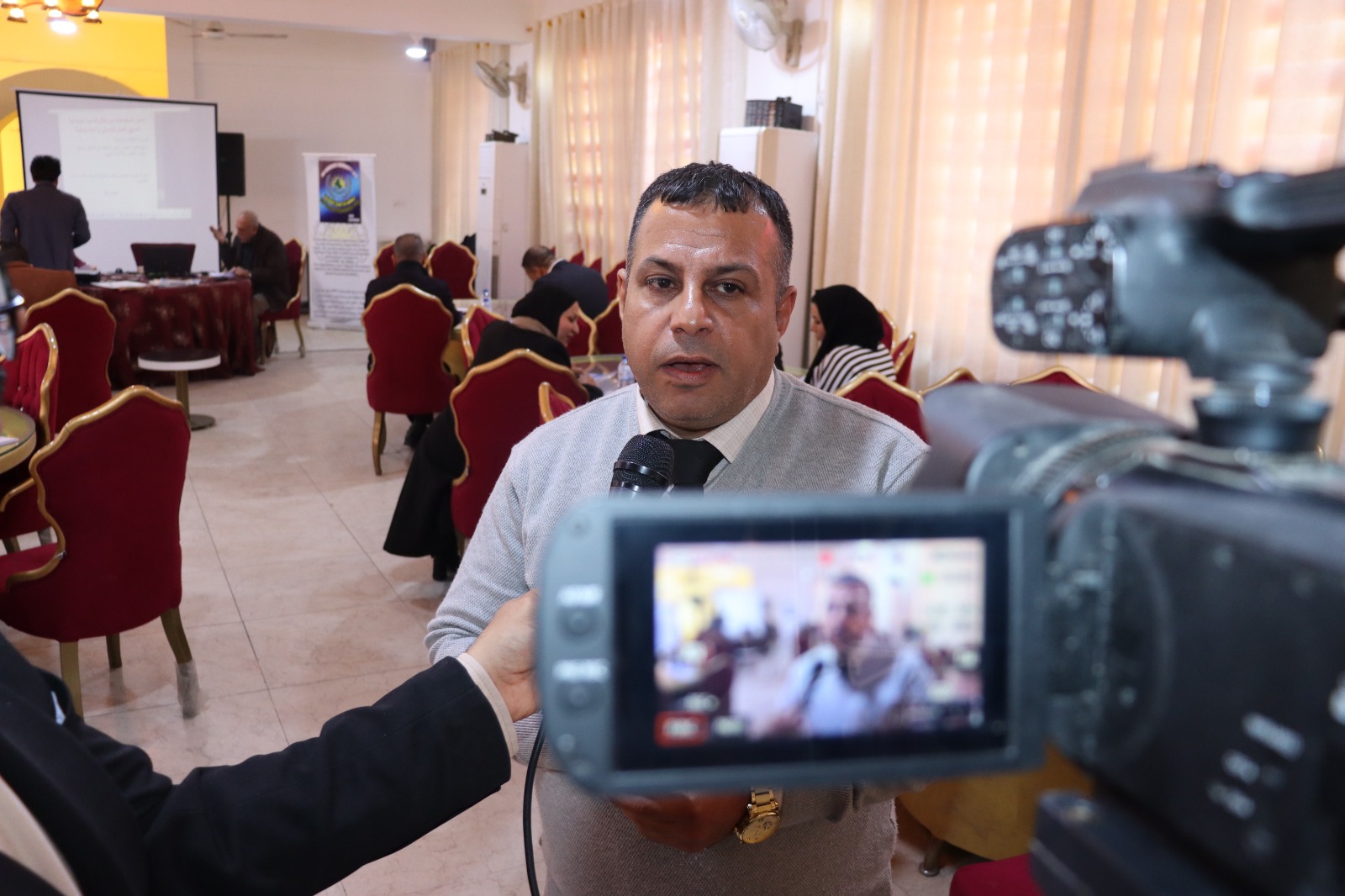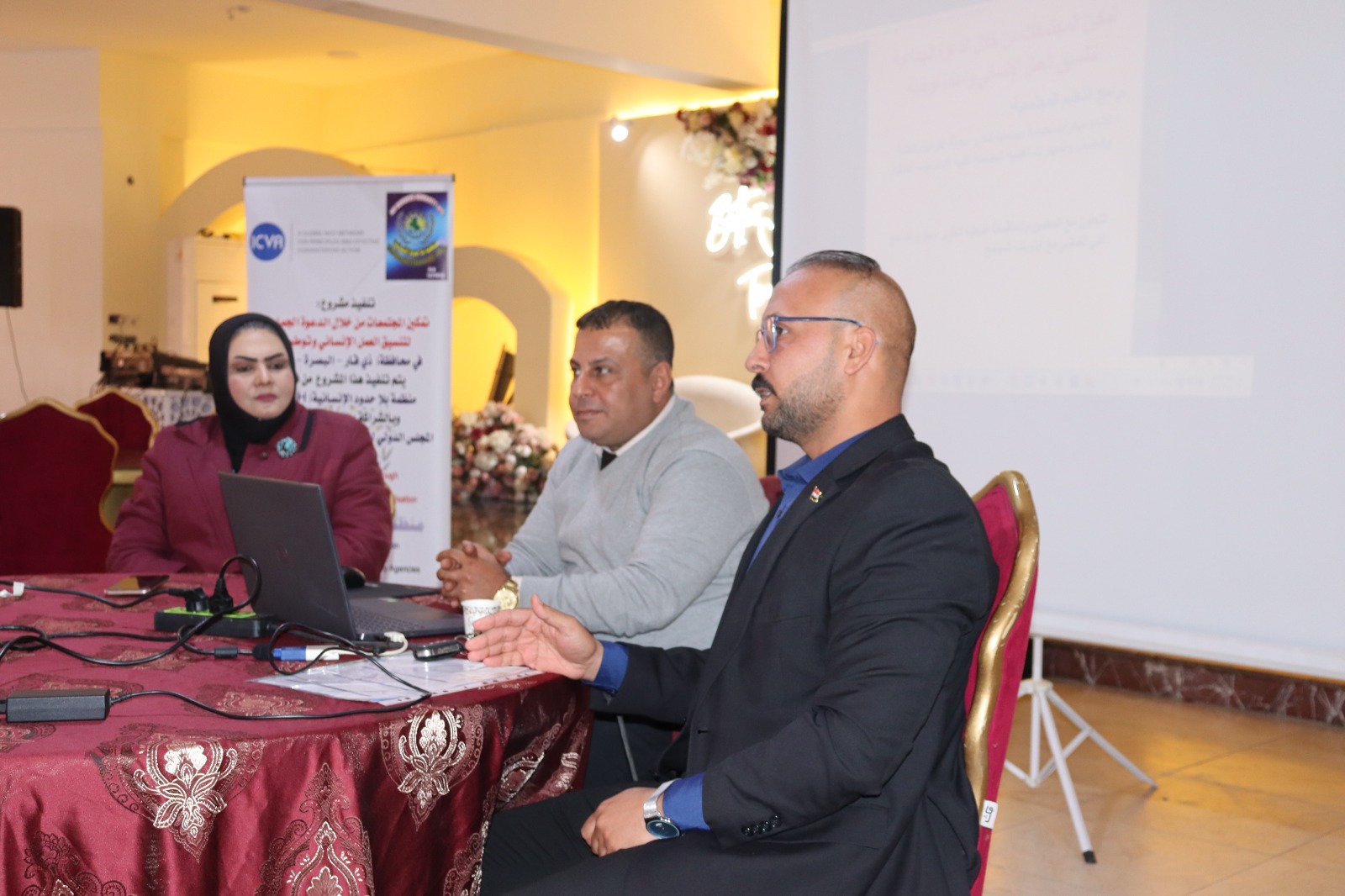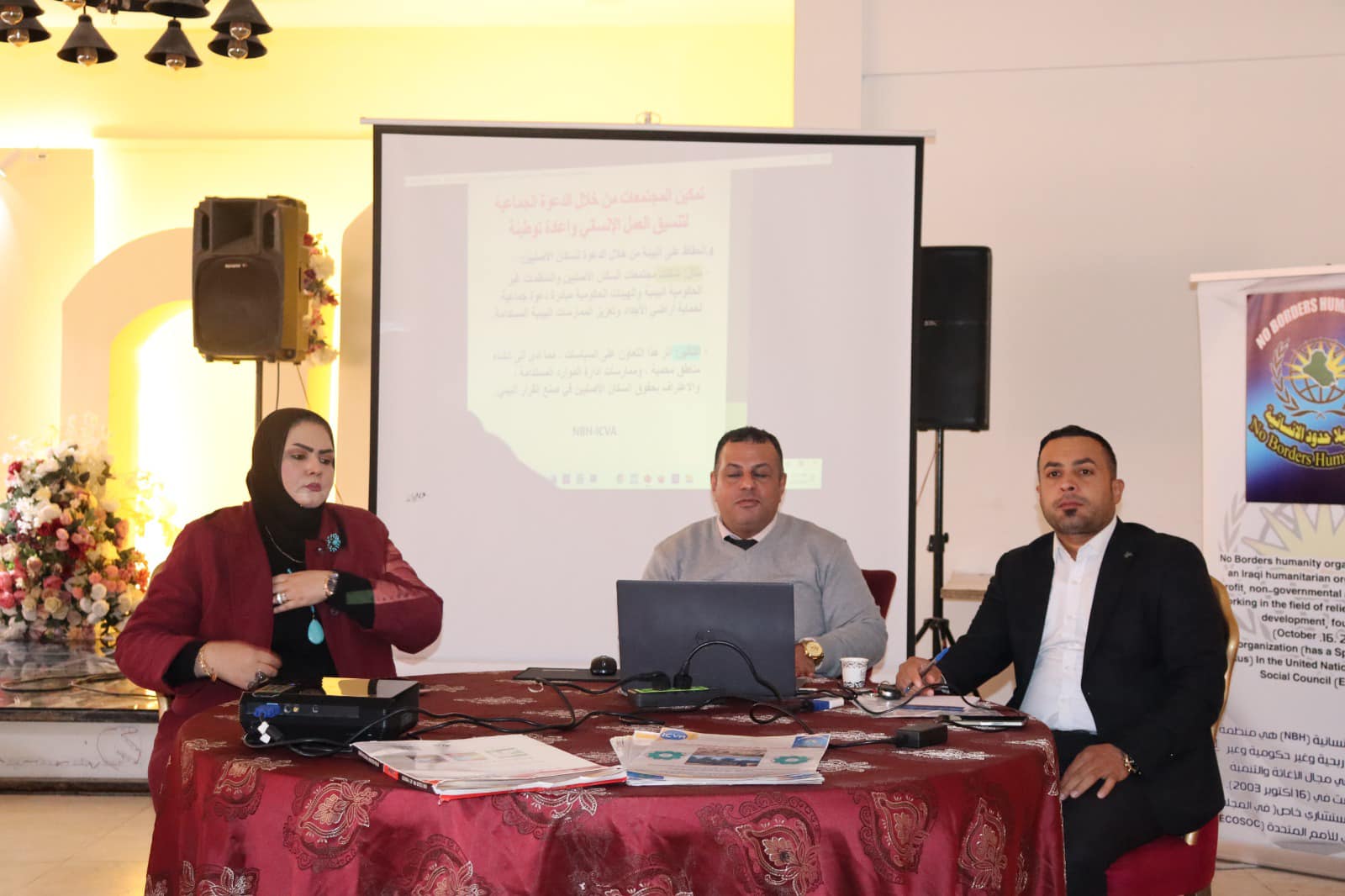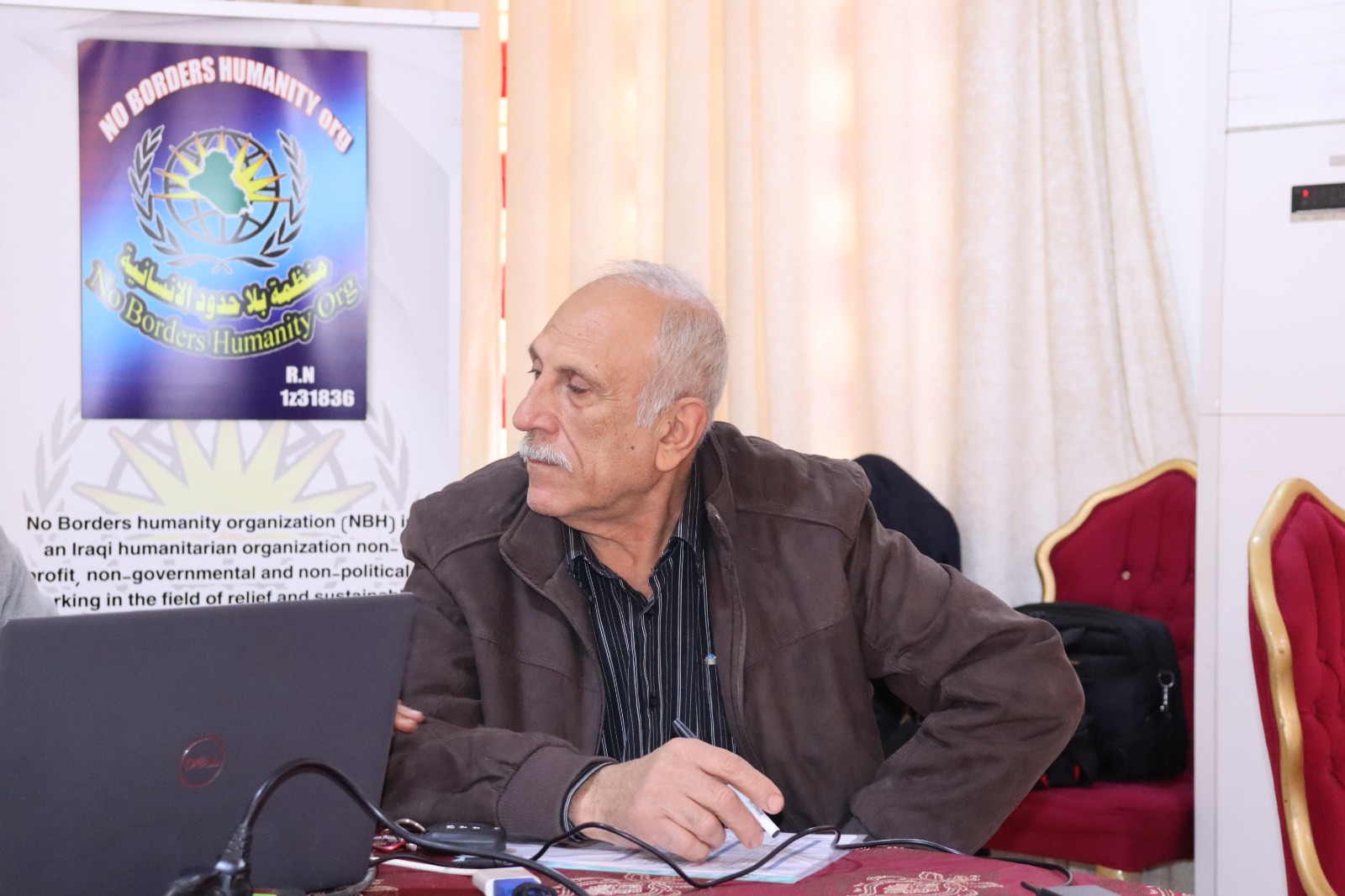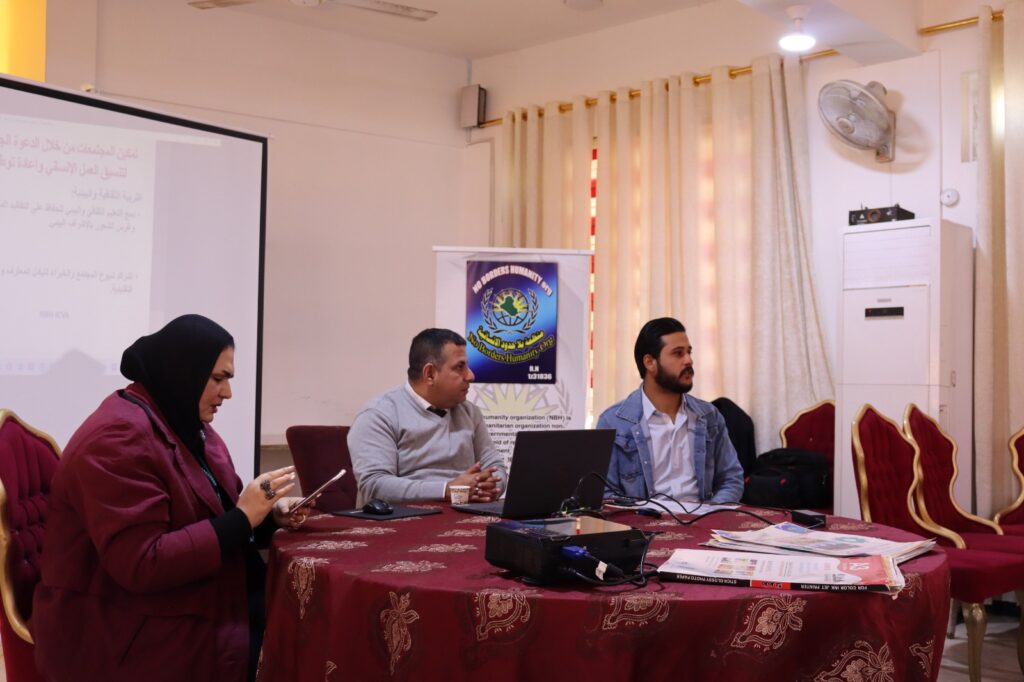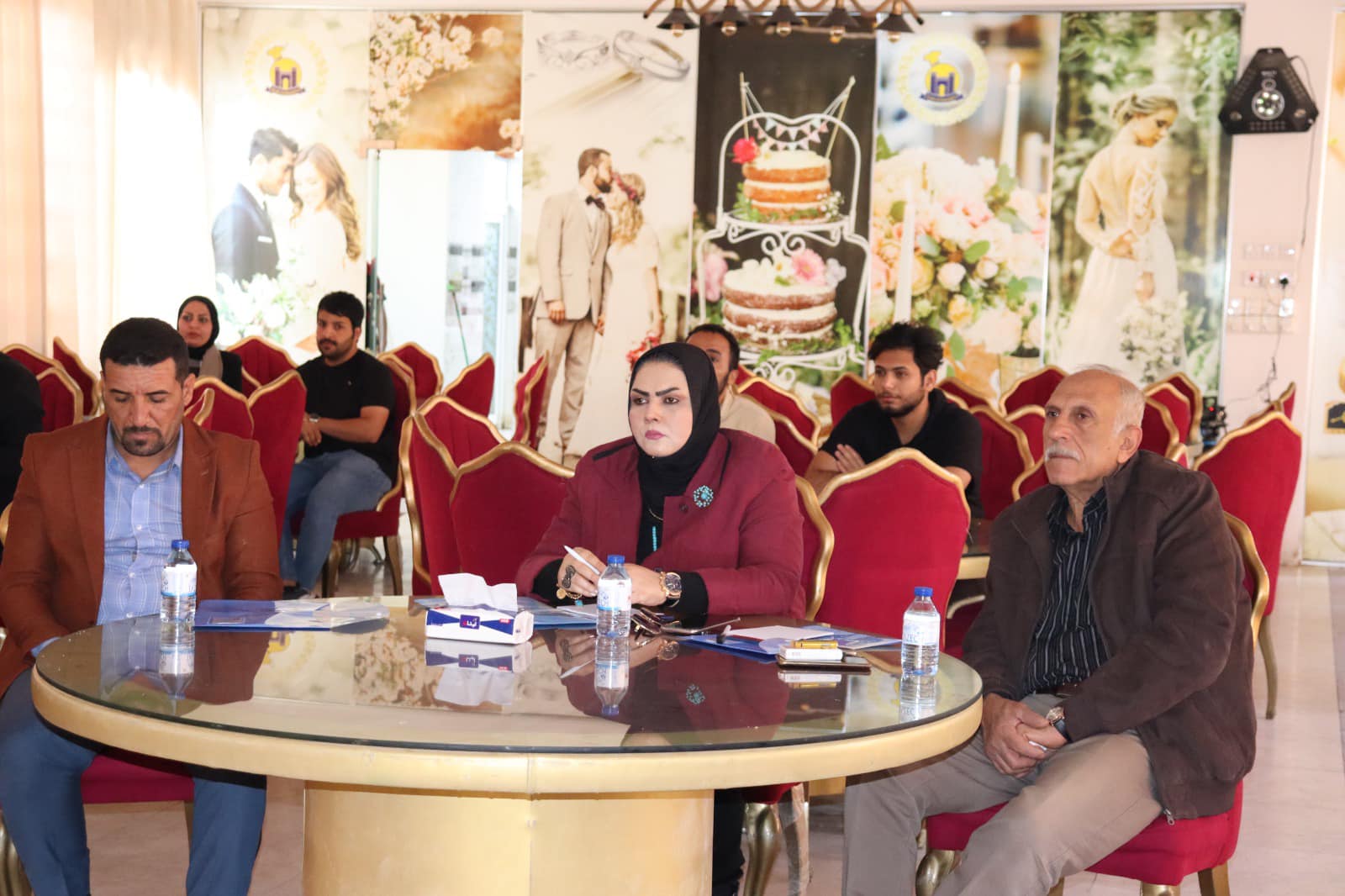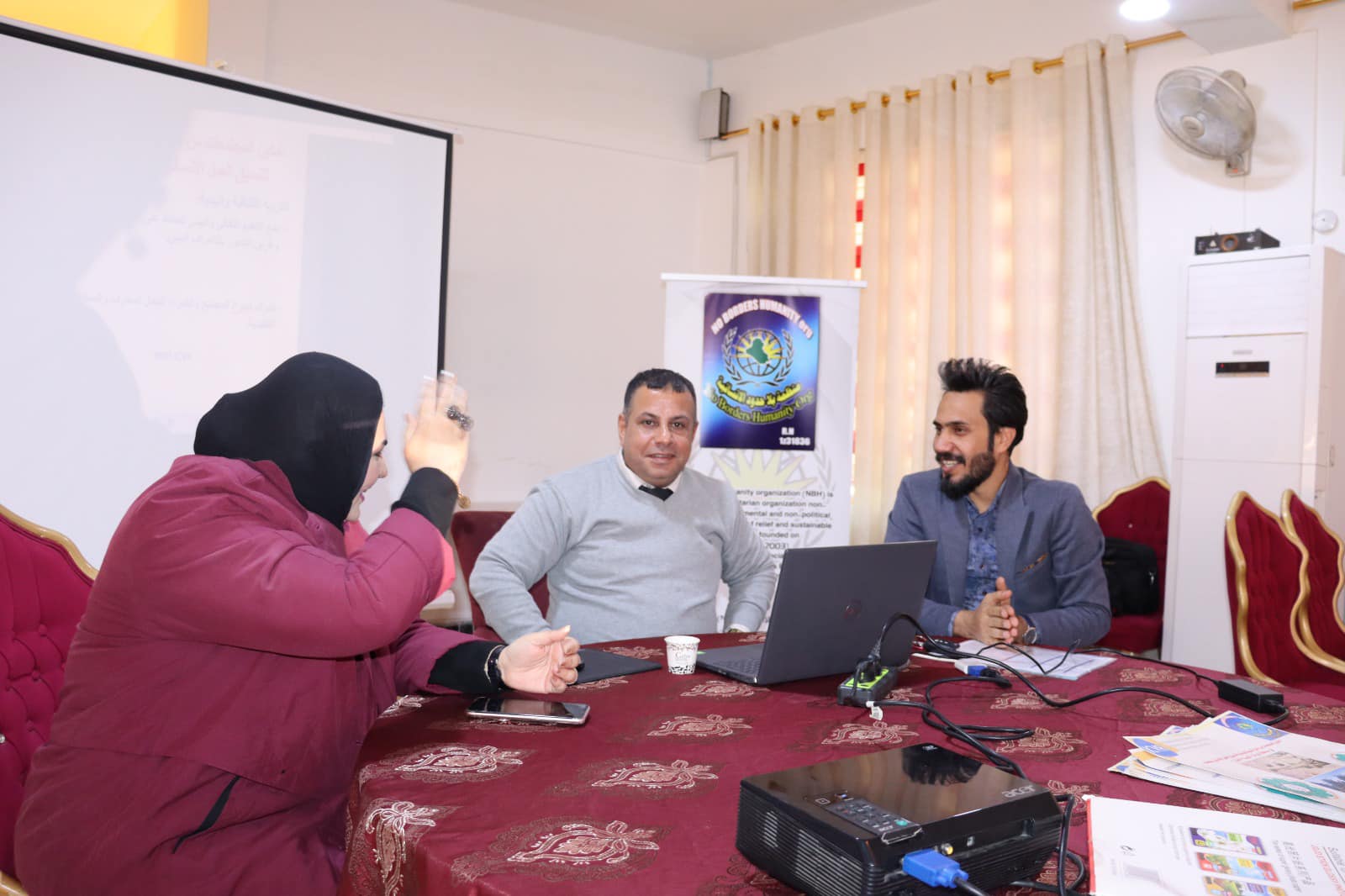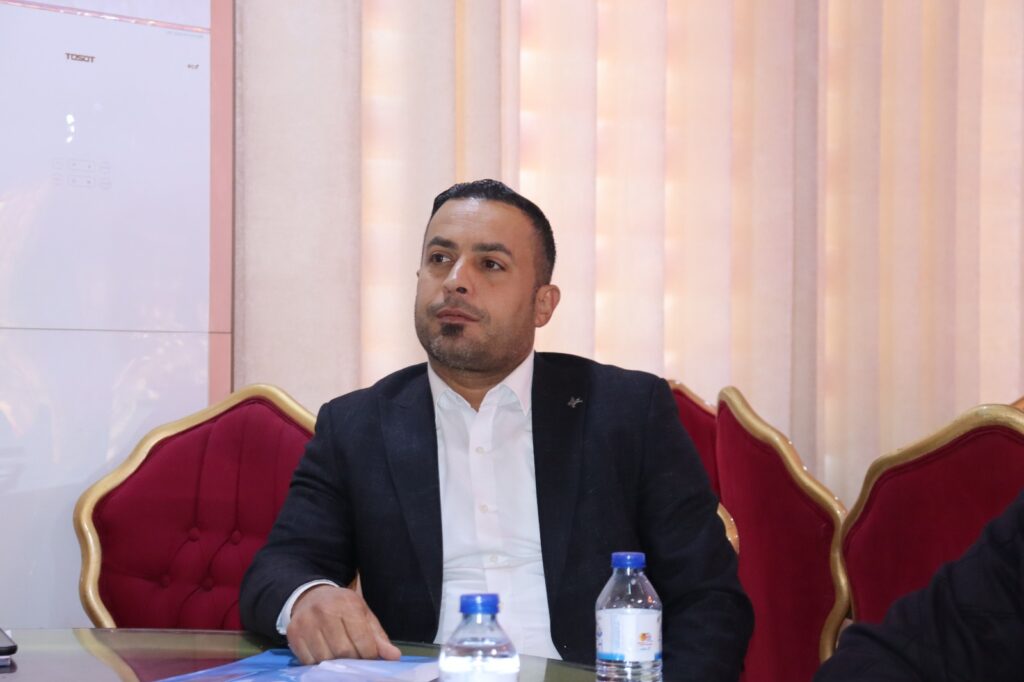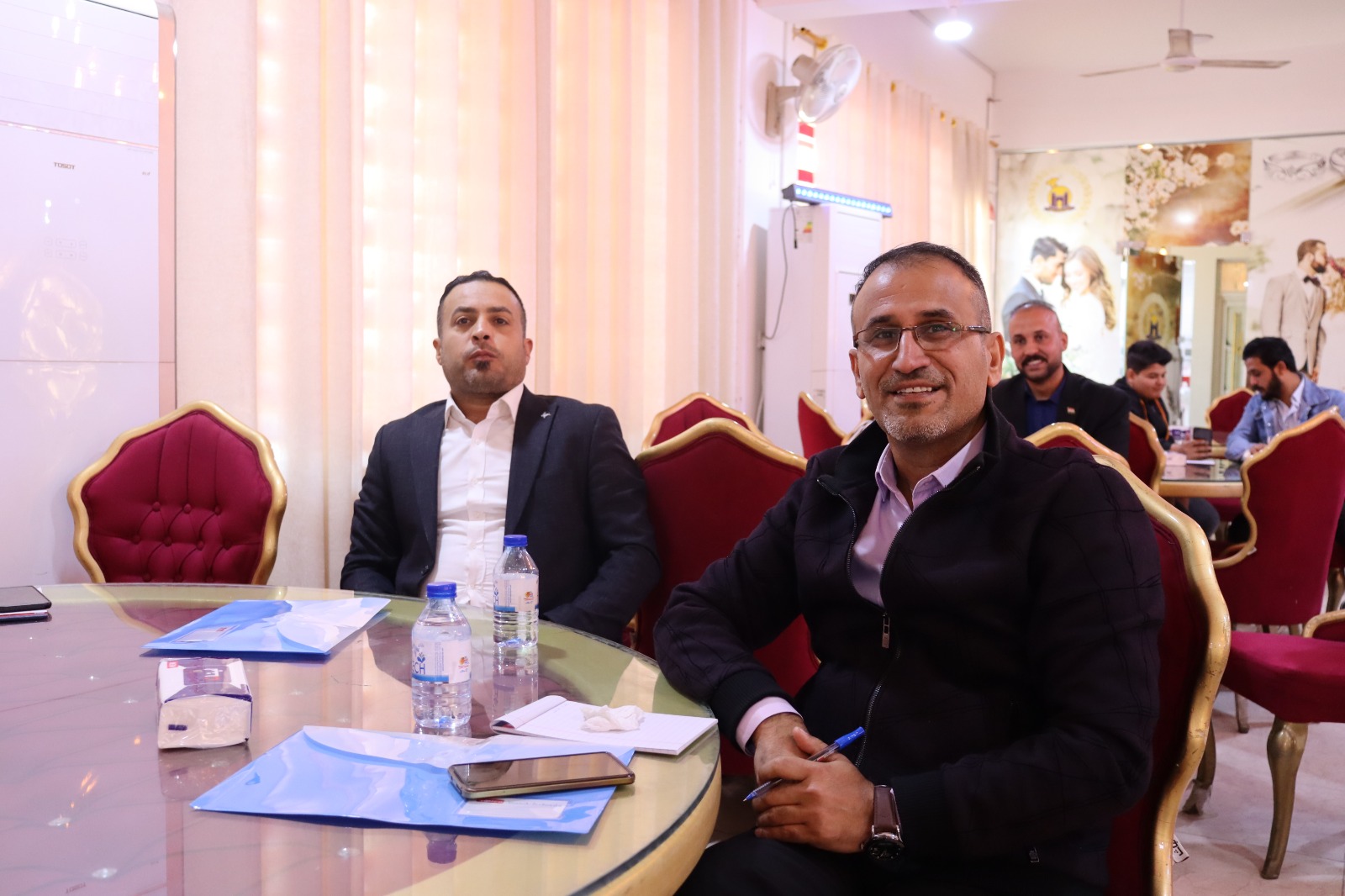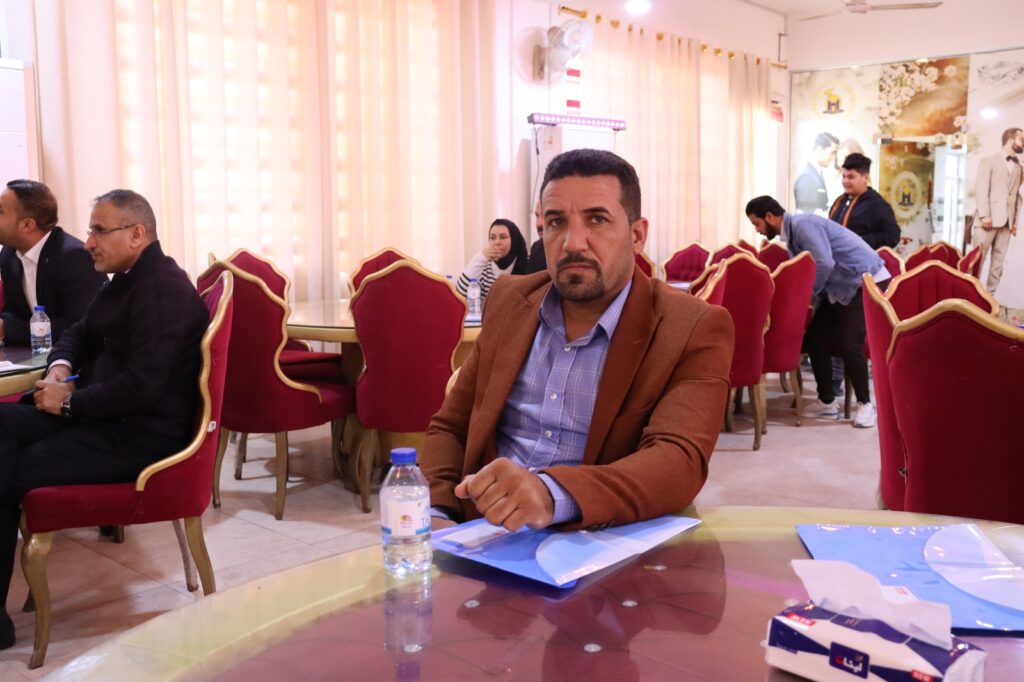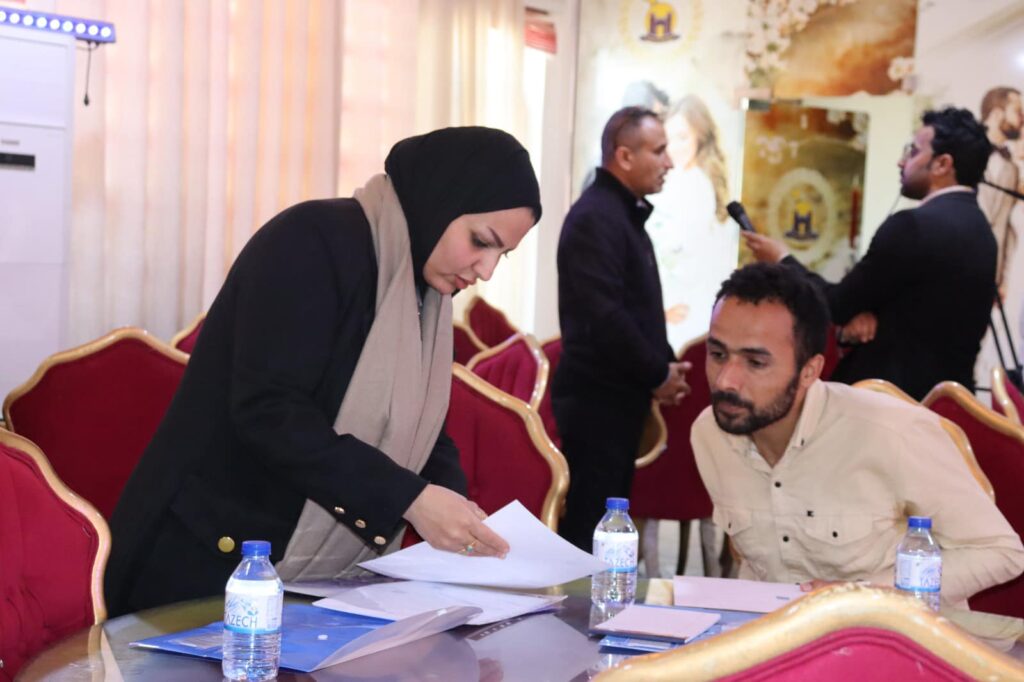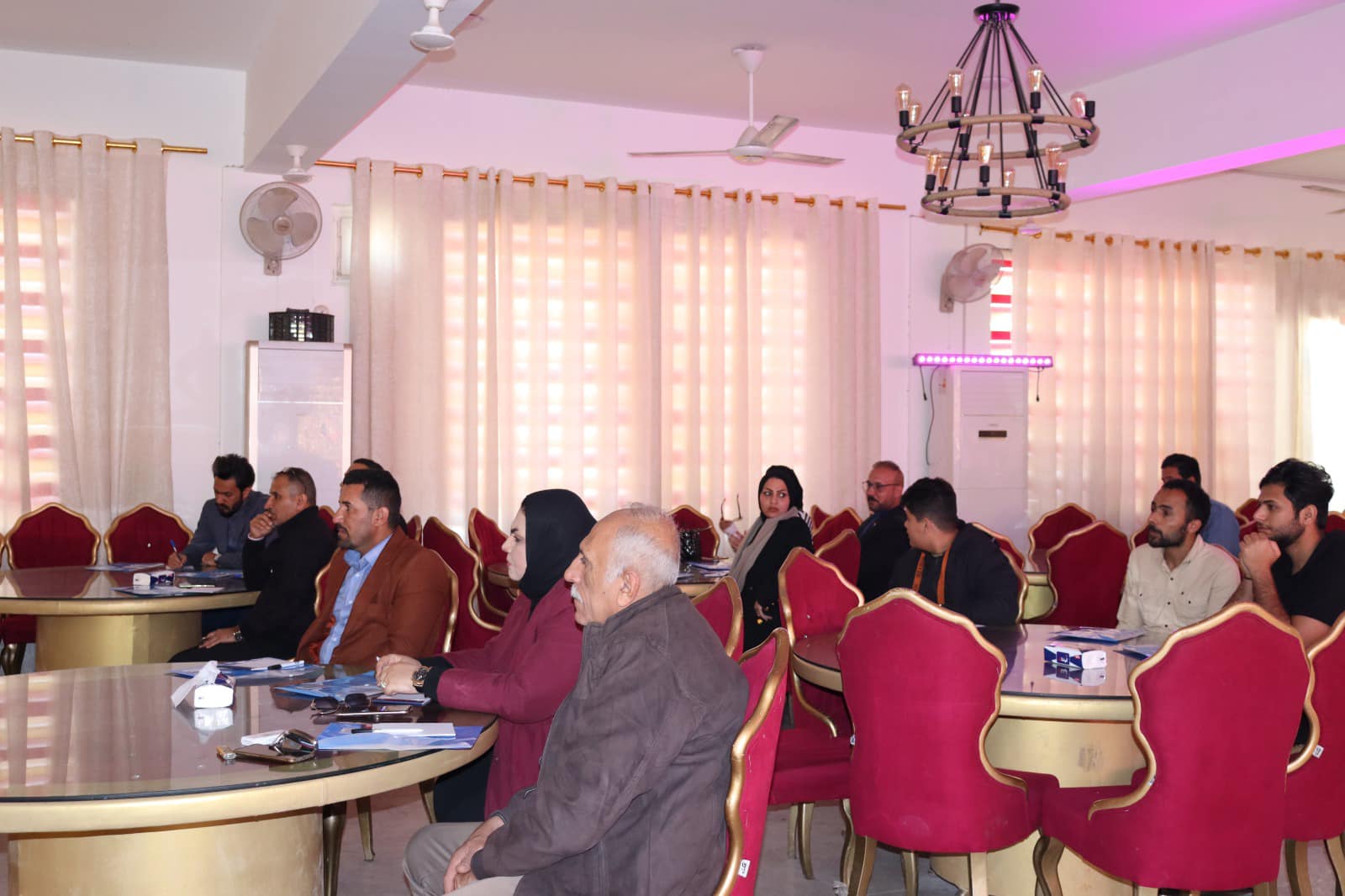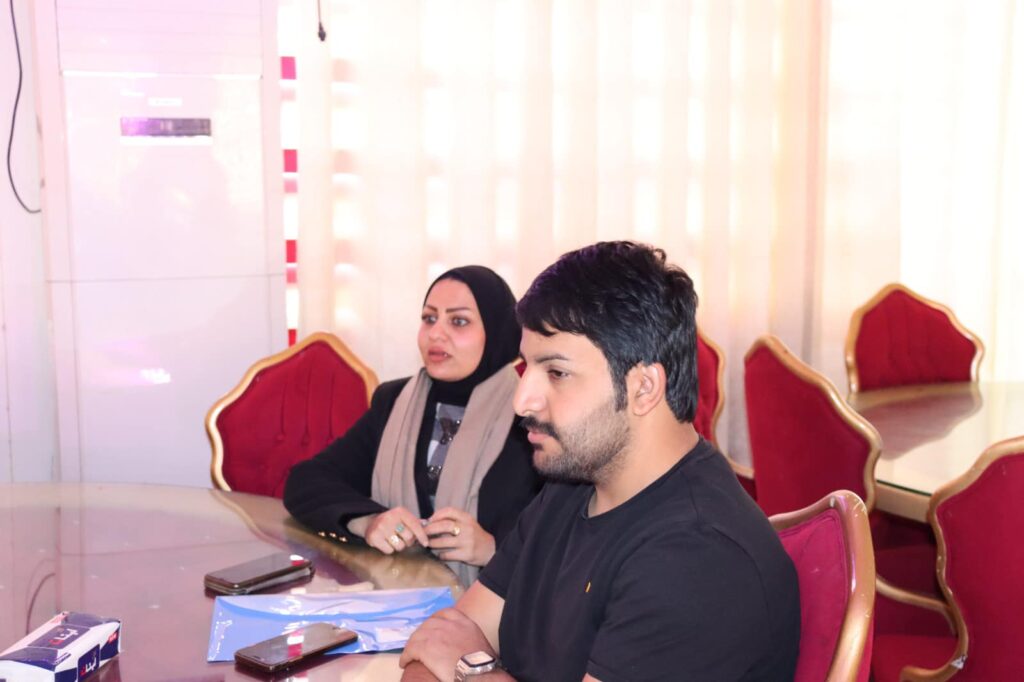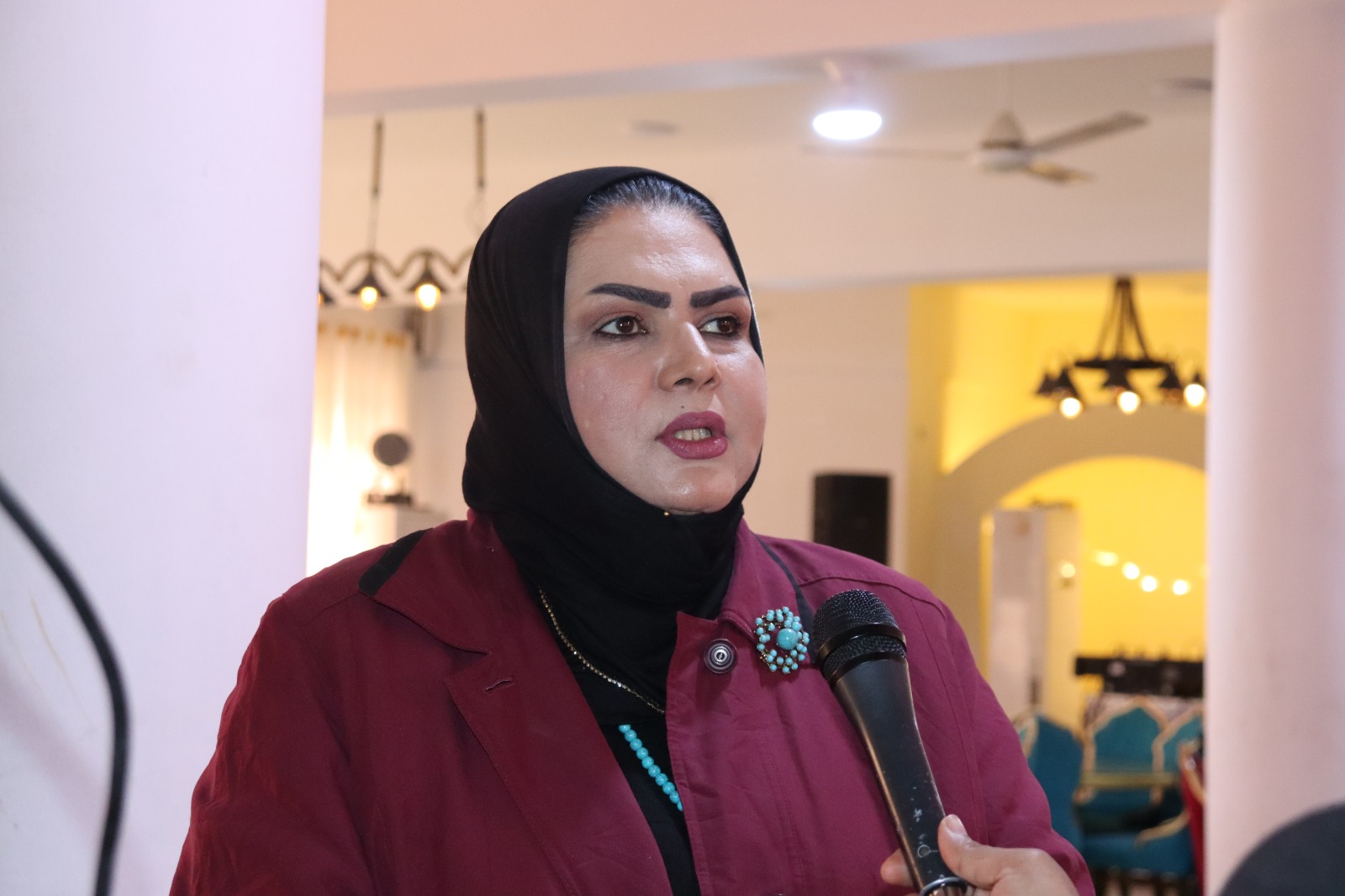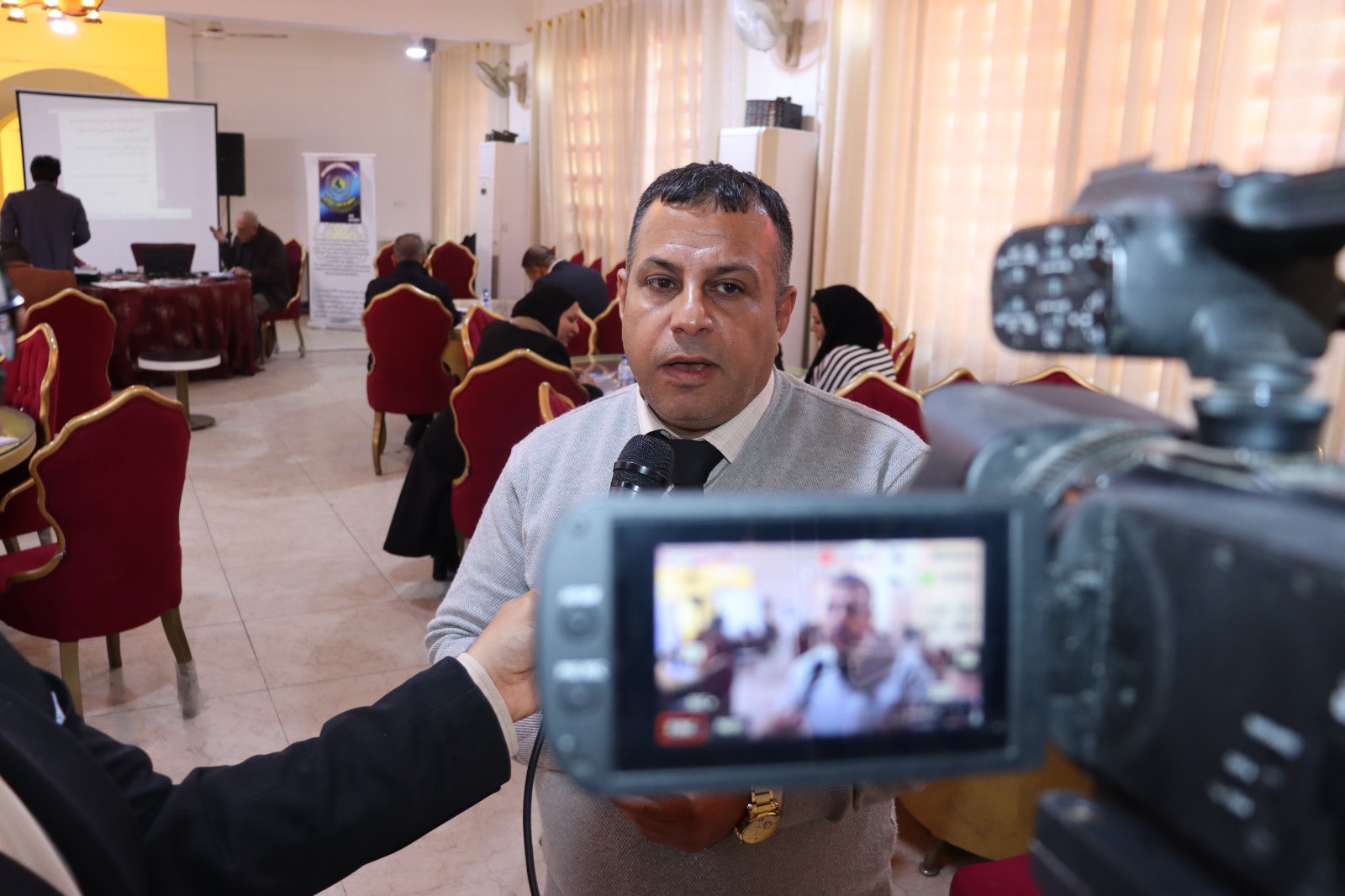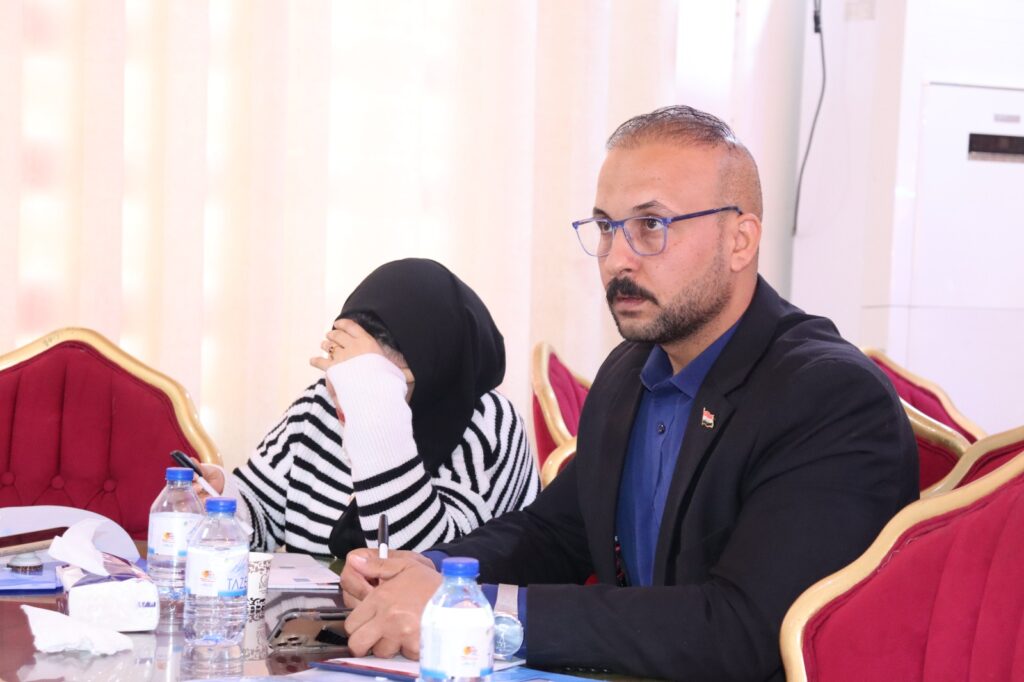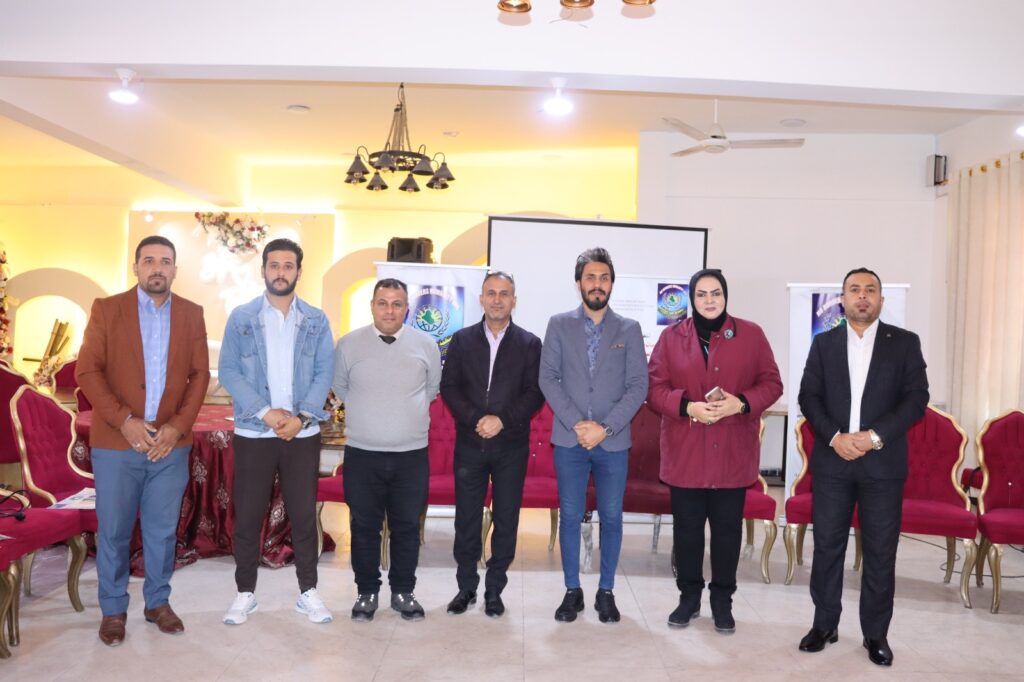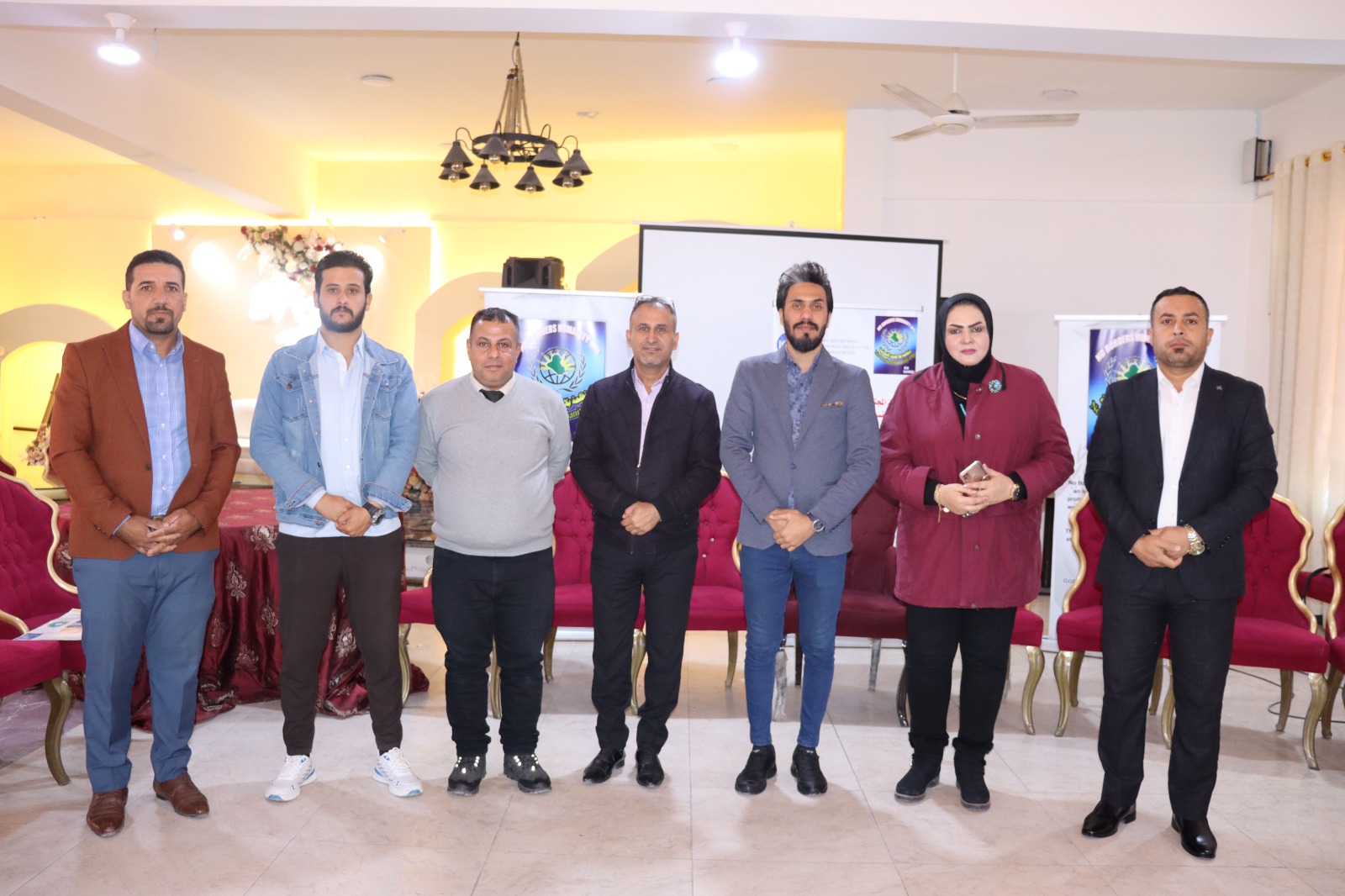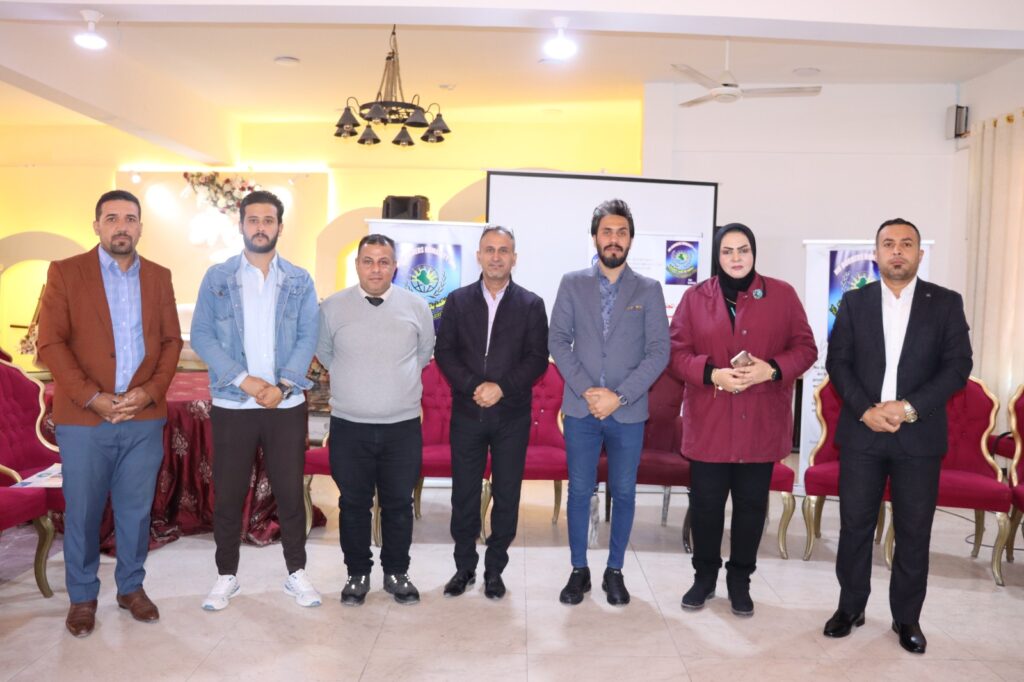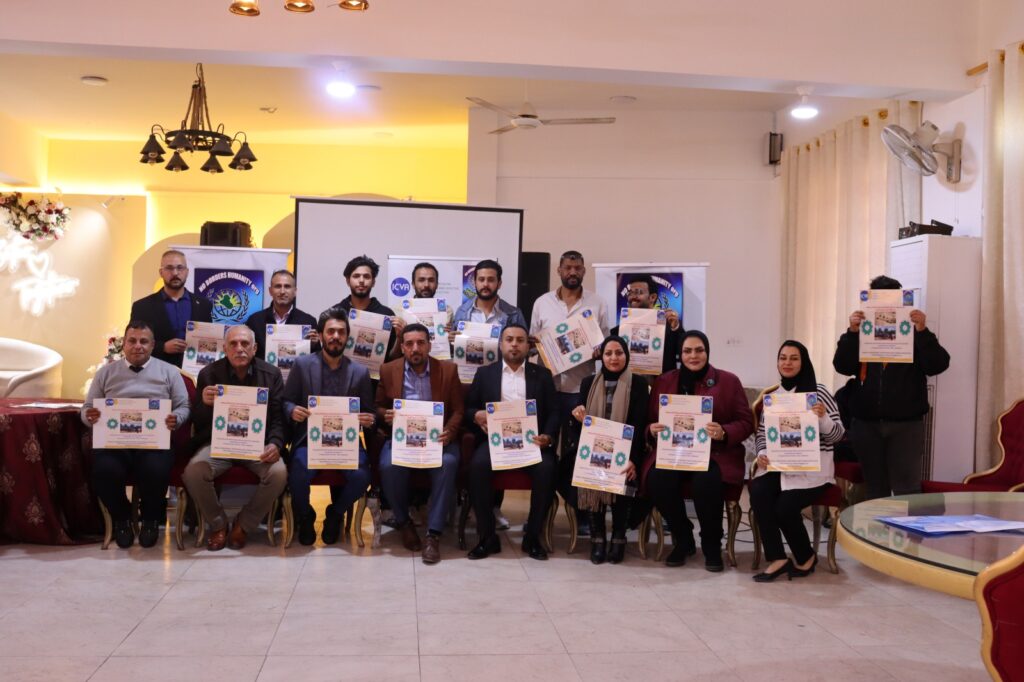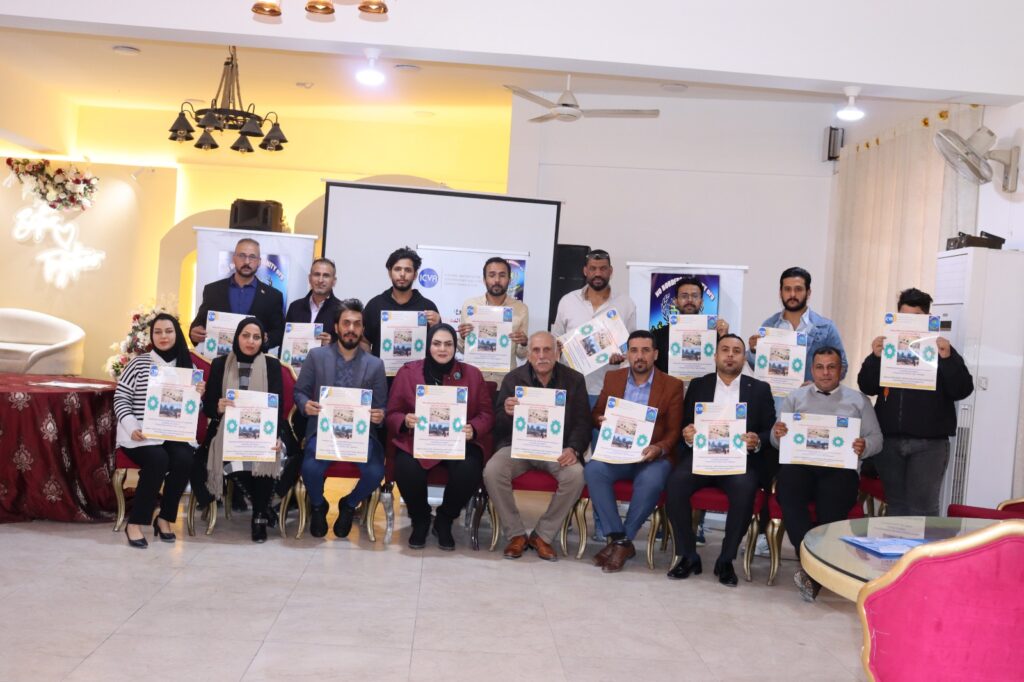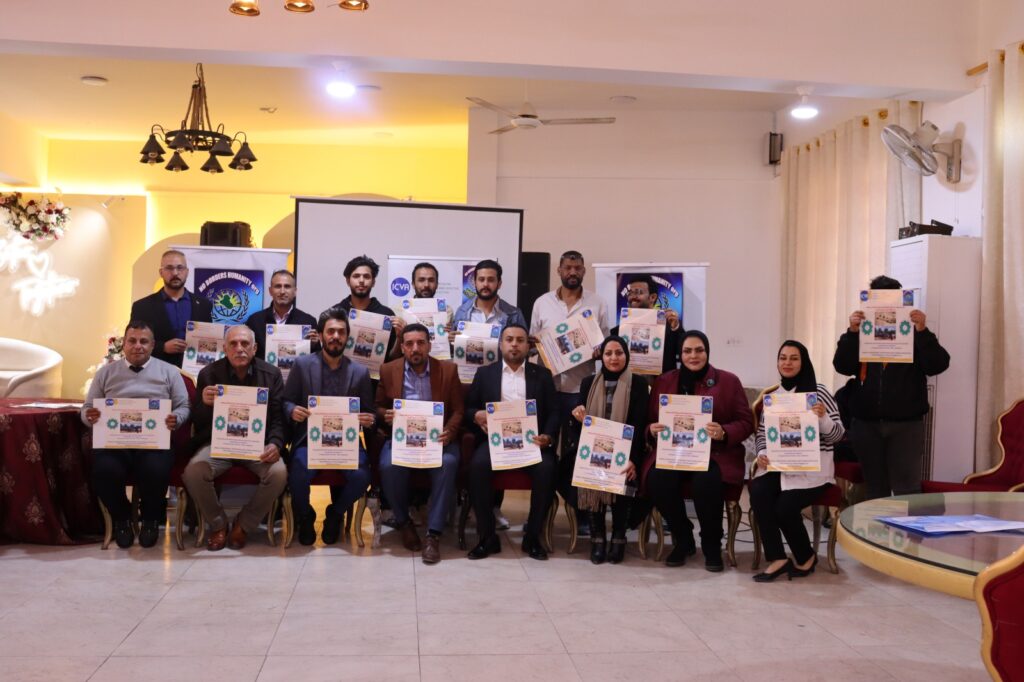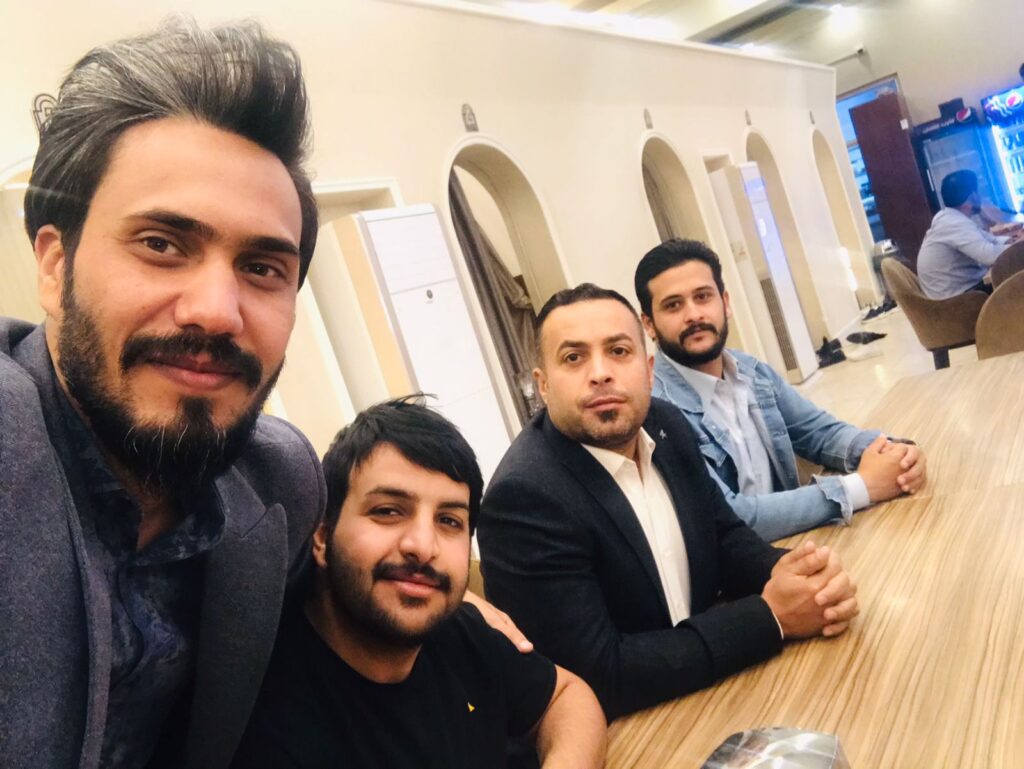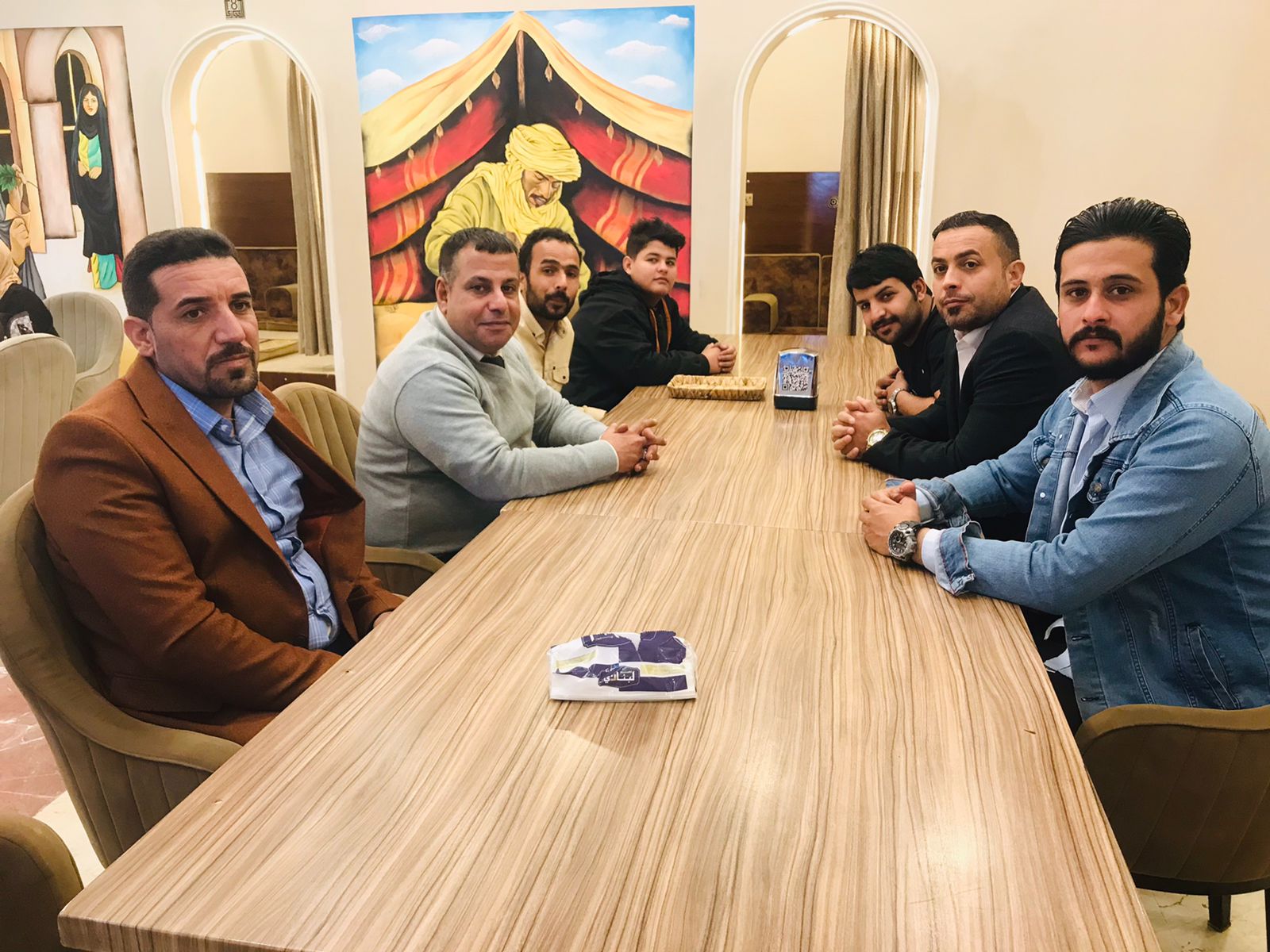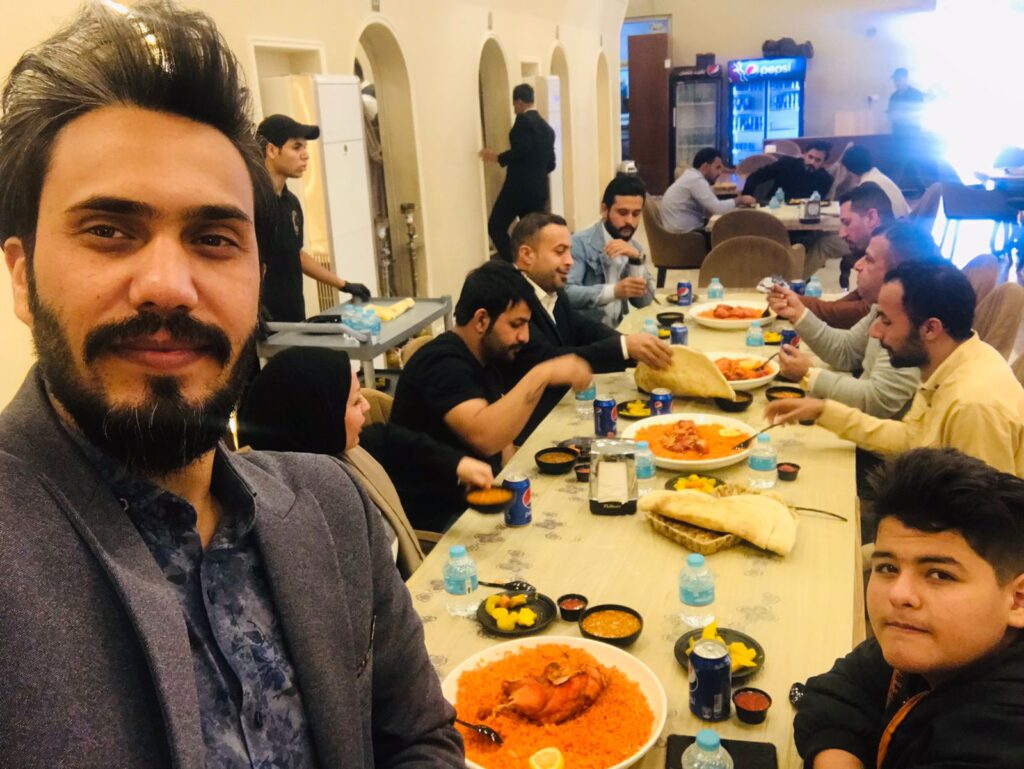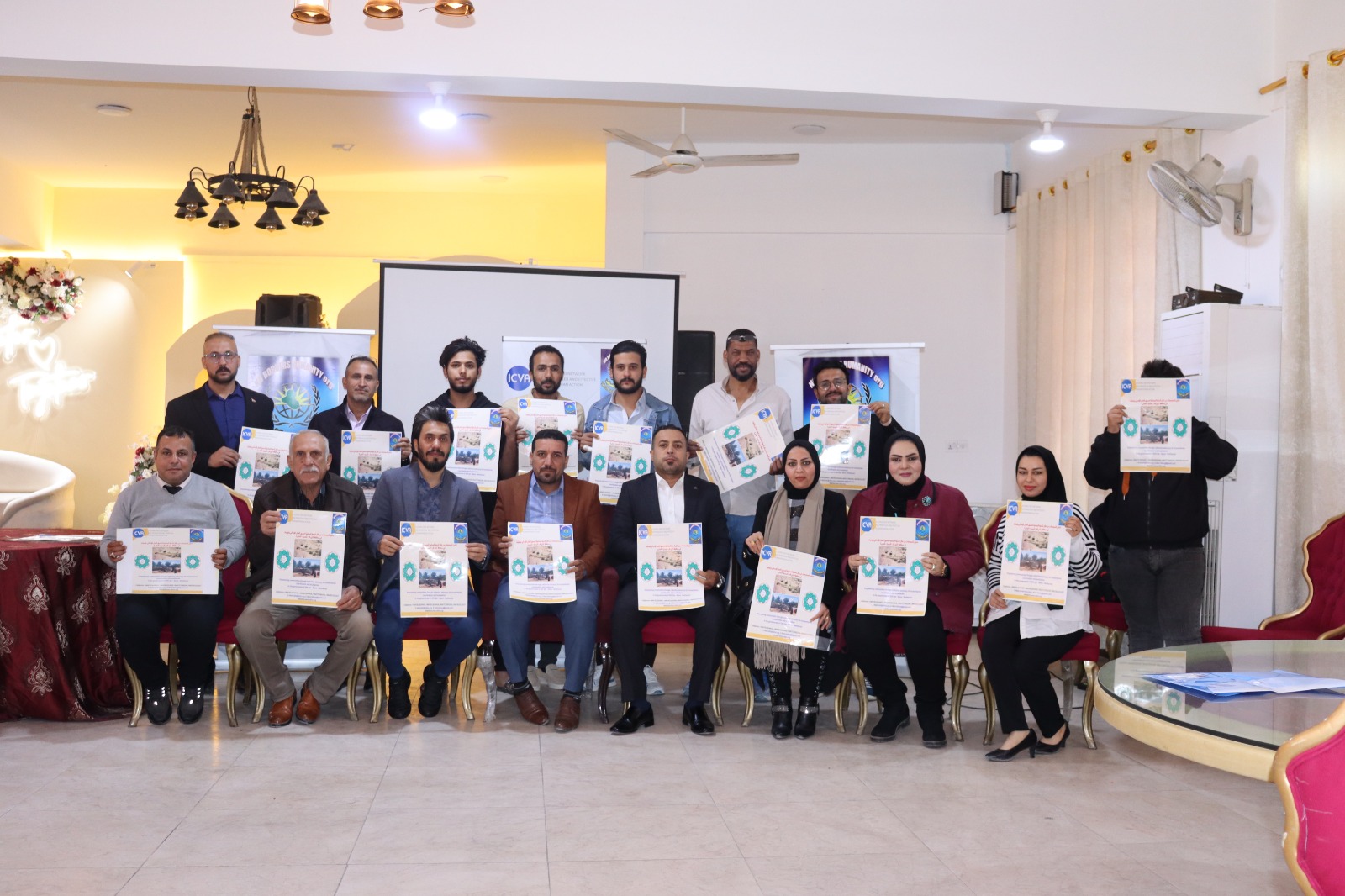Activity Report: Third Dialogue Session on Empowering Communities
Project Name
Empowering Communities through Advocacy for Humanitarian Coordination and Localization.
Introduction: The No Borders Humanity Organization (NBH), in collaboration with the International Council of Voluntary Agencies (ICVA), organized the second dialogue session as part of the project “Empowering Communities through Collective Advocacy for Humanitarian Work Coordination and Localization” in Dhi Qar Governorate, Iraq.
The activity aims
To enhance cooperation between the governmental sector and non-governmental organizations to improve humanitarian response and promote localization processes.
Session Topic
The session revolved around “Improving Coordination between the Governmental Sector and Non-Governmental Organizations in Humanitarian Work and Enhancing Community Partnership for Sustainable Development.”
Activity Details
- Activity Title: The Third Dialogue Session
- Date of Activity: 07 March 2024
- Time: 09:00 AM to 01:00 PM
- Location: Republic of Iraq, Dhi Qar Governorate, Nasiriyah City, towards Shamiya, Ishtar Conference Hall near Nasiriyah Park.
- Facilitators: Ammar M.S. Alghurabi (Project Manager), Sabreen Alwaeli (Project Coordinator), Masar M.S. Alghurabi (Logistic officer).
- Organizing Organization: No Borders Humanity Organization (NBH)
- Donor: International Council of Voluntary Agencies (ICVA).
Objectives of the Activity
- Enhancing stakeholders’ understanding of the importance of cooperation in humanitarian work coordination.
- Exchanging experiences and knowledge between the governmental sector and non-governmental organizations.
- Highlighting challenges and opportunities in the humanitarian work localization process in the region.
- Formulating practical recommendations to enhance cooperation and improve humanitarian response.
Participants
Total number of participants: 15 | Gender Distribution: Male: 12 . Female: 03 .
Participants included representatives from:
- Academics, representatives from the governmental sector
- volunteer team leaders
- media professionals
Agenda
- 09:00 AM – 09:15 AM Opening of the Session and Overview of the Empowering Communities through Collective Advocacy for Humanitarian Coordination and Localization Project and its Funding Entity ICVA
- 09:15 AM – 09:30 AM Presentation on Project Objectives and Importance
- 09:30 AM – 10:00 AM Dialogue Session on Steps for Collective Advocacy for Humanitarian Coordination
- 10:00 AM – 10:30 AM Question and Discussion Period
- 10:30 AM – 11:00 AM Short Break
- 11:00 AM – 11:15 AM Dialogue Session on Reviewing Steps and Analyzing Needs
- 11:15 AM – 11:45 AM Discussion on Localization Events and Best Practices for Achieving Impact
- 11:45 AM – 12:15 PM Question and Interaction Period
- 12:15 PM – 12:45 PM Session Conclusion, Thanking, and Appreciation
- 12:45 PM – 01:00 PM Lunch Break 01:00 PM – 02:00 PM
Key Discussion Points
During the Third dialogue session on Empowering Communities through Collective Advocacy for Humanitarian Coordination and Localization the following main topics were discussed:
1. Importance of Cooperation: Participants emphasized the critical role of cooperation and collaboration between the governmental sector and non-governmental organizations (NGOs) in ensuring effective humanitarian response and sustainable development.
2.Challenges in Localization: The session highlighted challenges faced in the localization of humanitarian work, including bureaucratic hurdles, resource constraints, and the need for streamlined processes.
3.Best Practices and Experiences: Local and international best practices and experiences in humanitarian work localization were shared, providing insights into successful models and strategies.
4.Community Engagement: The discussion emphasized the importance of engaging local communities in decision-making processes and empowering them to actively participate in humanitarian initiatives.
5.Recommendations and Solutions: Participants worked collaboratively to formulate recommendations and solutions aimed at improving cooperation, overcoming challenges, and enhancing the localization of humanitarian efforts in the region.
Results and Impact
- Participants exchanged experiences and knowledge in the field of humanitarian work localization.
- Emphasis was placed on the need to enhance cooperation and coordination between the governmental and civil society sectors.
- Several local challenges facing the humanitarian work localization process were identified, such as bureaucratic procedures and resource shortages.
- A set of recommendations was formulated to enhance cooperation and facilitate the humanitarian work localization process.
Recommendations
- Enhance communication and coordination mechanisms between the governmental sector and civil society organizations.
- Adopt measures to facilitate the humanitarian work localization process and reduce bureaucracy.
- Promote community participation in decision-making and humanitarian program implementation.
Attachments
- Group photos of participants.
- Project posters.
- Media coverage from the Ahwar Channel.
Conclusion
The Forth dialogue session at No Borders Humanity Organization (NBH) represents a significant step towards enhancing cooperation and partnership between the governmental sector and civil society in the field of humanitarian work and localization in the Dhi Qar Governorate. The recommendations stemming from the session serve as a framework for future work to improve humanitarian response and promote sustainable development in the region.
Next Steps
Follow-up actions include sharing the session’s outcomes with relevant stakeholders, implementing the formulated recommendations, and planning future activities to continue the collaborative efforts in humanitarian coordination and localization.
